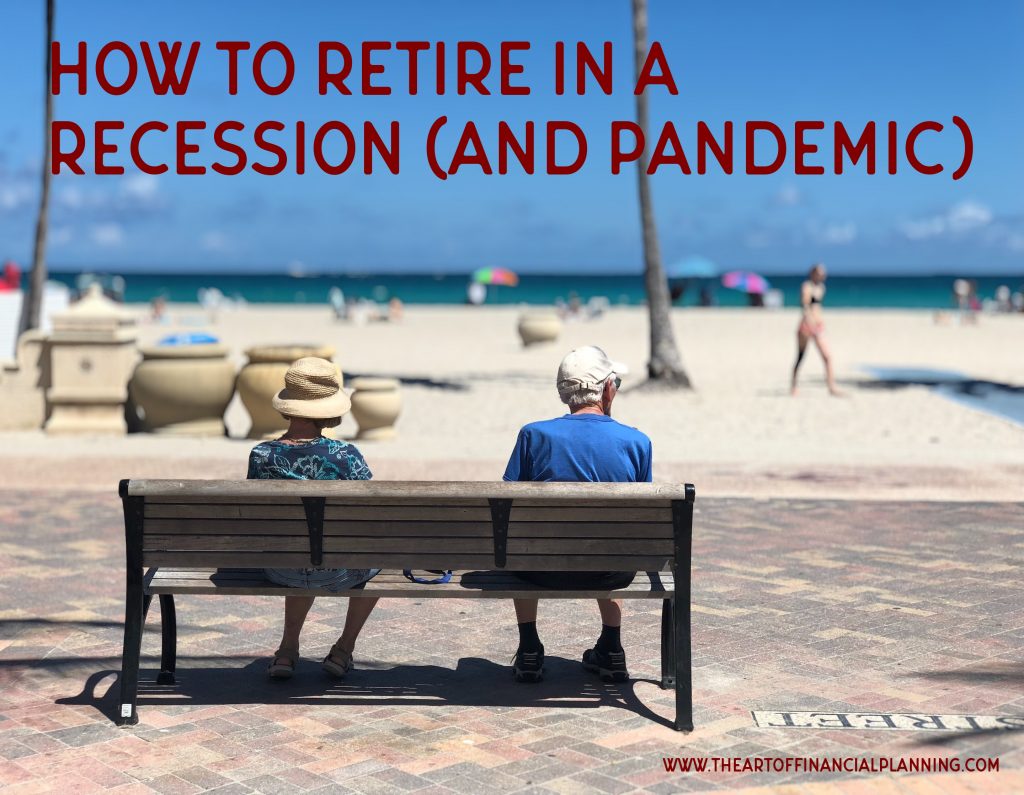
Planning the right time for your retirement depends on a lot of factors: how long do you want to continue to work, how much money do you have saved, what is your health like, and what is the economy doing? Some of these are within your control and you can change if, for example, market conditions are less than ideal you might choose to continue to work for a few more years until your nest egg recovers. But ultimately, choosing when and how to retire is a personal choice and not one dictated by Wall Street. Even if you are choosing to plan or actually retire in a less than ideal situation, like a recession wrapped in a pandemic, here’s how to make the most of your situation.
Maybe those stay-at-home orders have gotten to you and now you don’t want to leave. Maybe your health is in jeopardy and you need to rest. Maybe the pandemic has you thinking about the value of family and you want to retire to spend more time with your grandkids. Or maybe you have been planning for decades and 2020 has always been your year to make the big step into retirement (well, it’s gotta be someone’s year of positive change, right?). If so, welcome to your retirement and welcome to a newly minted recession.
If your portfolio took a big hit at the beginning of your retirement as the market tanked, you may be experiencing sequencing risk, the risk of experiencing poor investment performance at the wrong time. These upfront losses could impact your investment long term, leaving you with less in your nest egg and less to draw on year after year. You may have to sell some assets in the downswing which may deplete your portfolio faster than you had originally planned and may impact your portfolio’s potential to rebuild when the market rebounds. Plan accordingly for these lower annual payouts and adjust your annual retirement income, at least for several years until you see a marked improvement in the market.
One common recommendation is to utilize the 4% rule where you withdraw 4% of your investment annually (increasing to adjust for inflation when warranted), which is usually less than your investment’s annual growth and leaves room for the nest egg to continue to grow. That way you can live off the interest without eating into your principal investment. Be sure to check your financial needs and your annual investment returns as some consider this approach too aggressive. Be sure that you are not withdrawing more than you need or than your investment gains can support. Alternatively, you could implement the endowment method wherein you withdraw a fixed amount (usually 3% to 5%) and then withdraw that same percentage of your remaining assets annually so that your annual distribution may be lower but adjusts to the market. The modified endowment method is similar but sets a ceiling and floor on your withdrawals
One strategy to help lessen the impact of a down economy is to divide your portfolio into three categories of risk relating to three phases of retirement. For the short term (2-3 years) put some cash into liquid savings and other cash-alternative vehicles for easy access no matter the market condition. For the mid-term (3-10 years), focus on moderate to low volatility with fixed-income securities that have moderate growth. And for the long term (over 10 years), higher risk, growth-oriented investments such as stocks will give you better growth and longer terms to make up any depletions due to dips in the market over time.
You may also need to re-think your plans for what your retirement will look like. With the hit to your nest egg from a recently plummeted stock market, you may not have enough money to live off of to give you the lifestyle that you had originally planned for. If that is the case, consider scaling back to live comfortably within your means. That may mean less vacations or just choosing closer destinations for shorter lengths of time (no costly two month jaunts through Europe) but with the pandemic, you may be limiting your travel for the time being anyway. If you are relocating to sunnier shores, consider your long term income strategy carefully before purchasing a home and be sure that you can get something that you can comfortably afford, ideally without a mortgage.
Consider also an encore career. Maybe you have always wanted to write the next great American novel, so take a crack at it. Maybe your love for gardening can turn into a part time job at a local nursery or you can share your piano skills by offering private lessons. Or maybe you want to go for a full time teaching job to help train the next generation planning to work in your field. Whatever you choose, adding additional part-time or even full-time work will lower the strain on your investment resources and allow you to slow your draw-down on your nest egg while you wait for the market to rebound. If the quarantine has taught us anything, we all know that it is good to stay busy and keep your mind sharp, so perhaps a retirement life of puttering around the house isn’t all it is cracked up to be.
Retiring in a recession and pandemic may not be the golden years you had dreamed of, but you can still find the silver lining. Shifting your investment and withdrawal strategy, working closely with your financial advisor, and reframing your retirement can offer much-needed pivots away from certain financial ruin and into a new retirement strategy that can still afford much-needed rest without as many resources.


